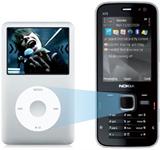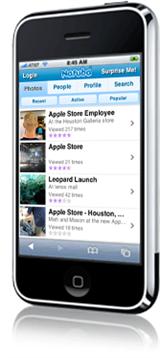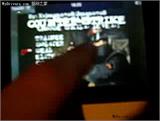Apple's first retail store in China opens; the Chinese market still has a long way to go.
Author: CNET Technology Information Network CNETNews.com.cn July 23, 2008, 09:54:46 Keywords: iPod iTunes iPhone MacBook Mac Apple Apple Store Apple Retail Store
CNET Technology Information Network International Report on July 23rd Yang Weiguo, a 20-year-old college student from Beijing, is a devoted Apple fan. Given that Apple has not yet entered China on a large scale, this is quite an achievement. In April, Yang purchased a new MacBook through the MacX.cn website, an Apple enthusiast online store with no affiliation to Apple. This website procured the MacBook for Yang in Hong Kong and then shipped it back to Beijing, saving him $239.
Yang learned through the Apple enthusiast community that on July 19th, Apple opened its first Apple Store retail store in China, and he decided to support it. Yang arrived at the location of Apple's first retail store in China, Sanlitun, Beijing, 22 hours early. More than 100 Apple fans camped out overnight there, waiting for the store's opening the next day.
Apple hopes to have more Apple fans like Yang. Apple plans to open a second store in Beijing in 2009, followed by another one in Shanghai. Apple's Vice President of Retail, Ron Johnson, said: "We hope to succeed in China; the overall economy in China is growing."
Apple still has a long way to go in China. Although Apple dominates the U.S. digital music player market, last year in China, Apple sold only 700,000 iPods, accounting for just 7.5% of the Chinese market share. (IDC data shows that the number of gray market iPods in the Chinese market was 300,000.)
Apple's Mac market share in China is even worse. Last year, Mac sales in China were 65,000 units, with a market share of less than 0.18%. The iPhone has not been officially sold in China, but according to In-Stat estimates, by the end of 2007, 400,000 iPhones had flowed into the Chinese market, accounting for only 0.07% of the largest mobile phone market in the world.
IDC analyst Bryan Yuan said that among Apple's three core products (iPod players, iPhone smartphones, and Mac computers), the iPod is Apple's main source of revenue in China, accounting for four-fifths. Apple has quietly begun preparations for selling the iPhone in China, and ultimately, the iPhone may surpass the iPod in sales because of China's massive mobile phone market. Recently, Apple and China Mobile have restarted negotiations for introducing the iPhone.
One factor hindering Apple's development in China is its retail model. For many years, Apple has sold iPods and Macs through authorized IT mall channels. Starting last year, Apple began modifying its sales model in China, signing cooperation agreements with Suning Electric Appliances and Gome Electric Appliances to begin selling Apple products in these home appliance malls. Apple also hired former Motorola executives to oversee sales.
Not everyone is optimistic about Apple's latest retail strategy. Antonio Wang, IDC China research manager, said: "Apple opening its own stores will help increase brand awareness, but it's hard to say whether it will boost product sales."
The biggest issue lies in the price. Some Chinese users like Mac's clean design and its ability to prevent viruses, but due to high prices, fewer users actually purchase Apple products.
Apple products sold in China are generally more expensive than those sold in the U.S. market. For example, the 2.4 GHz Intel Core Duo MacBook costs $2000 in Apple's retail store in Beijing, which is almost the average annual income of urban workers in China in 2007.
In contrast, the same product in the U.S. Apple online store only costs $1300. Apple does not consider this an issue; Johnson said that Apple sets prices based on market conditions. He said: "I've heard that 3.3 million people in Beijing own cars. If you can afford a car, I think you can afford an iPod or a Mac."
In many ways, China differs from other foreign markets Apple has entered. China is the only developing country where Apple has opened retail stores; apart from Australia, the UK, Canada, and Japan, Apple has no other retail stores outside the U.S.
China is also the first country where Apple has opened physical stores without launching a Chinese version of the iTunes Music Store. Apple's Johnson refused to disclose the reason. Analysts said that Apple's biggest concern is piracy issues.
The International Federation of the Phonographic Industry estimates that 99% of music files circulating in China are pirated. Matthew Daniel, vice president of R2G Records in Beijing, said: "Apple should perhaps be more involved in solving this problem, using platforms like iTunes, after all, quite a number of people in China are still using iPods."
Other manufacturers have already taken action. In 2005, Aigo became the first company in China to open an online music store. Aigo founder and president Feng Jun admitted that Aigo's online music store is still operating at a loss, but he believes that as China continues to combat piracy, legitimate music downloads will have their day.
He said: "We are a start-up company, but we have also invested in an online music store. Apple should be able to bear the related costs. Launching a Chinese version of iTunes is not a huge investment for Apple."
Source: http://www.cnetnews.com.cn/2008/0723/1005416.shtml



